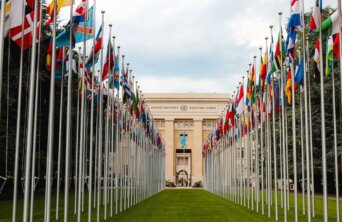- About
- Topics
- Picks
- Audio
- Story
- In-Depth
- Opinion
- News
- Donate
- Signup for our newsletterOur Editors' Best Picks.Send
Read, Debate: Engage.
| topic: | Peace and Reconciliation |
|---|---|
| located: | Afghanistan, Syria, South Sudan, Mali |
| editor: | Bob Koigi |
As global conflicts and insurgencies evolve, altering international security and politics as a result, the role of peacekeeping as a vital instrument of peace and order continues to take centre stage.
Peacekeeping interventions have been pivotal in taming conflicts, resolving insurgencies, rebuilding state institutions and tackling violence in the middle of war. They have been credited with reducing the duration of conflicts, preventing wars from recurring and even emboldening the civil society space.
From UN-led peacekeeping missions in Afghanistan, Syria, South Sudan and Mali, there have been debates on the effectiveness of peacekeeping initiatives and to what extent they have contributed to addressing conflicts and restoring order.
Africa has been the site of over thirty United Nations peacekeeping missions since 1960, with more than 50,000 troops deployed as part of these interventions. According to one school of thought, these missions have enjoyed a success rate of two-thirds, with credit given to the commitment of conflicting parties to the peacemaking process. Countries such as Ivory Coast, Liberia, and Sierra Leone, which were previously ravaged by war, are said to have benefited from the disarmament and reintegration of ex-combatants, as well as the investment of sufficient resources into peacekeeping mandates. Additionally, support from the international community towards peace and accountability is seen as a key factor in the success of these missions.
Despite their successes, UN peacekeeping missions in Africa have not been immune to criticism. In recent years, missions such as the United Nations Interim Security Force for Abyei (UNISFA) in the contested region between Sudan and South Sudan, the United Nations Multidimensional Integrated Stabilization Mission in the Central African Republic (MINUSCA), and the United Nations Multidimensional Integrated Stabilization Mission in Mali (MINUSMA) have come under intense scrutiny due to operational inefficiencies. These shortcomings have sparked debates on the effectiveness of the doctrine of peacekeeping in addressing conflicts in the continent.
A recent report has raised concerns about the effectiveness of UN peacekeeping missions in responding to threats against civilians. The report revealed that peacekeepers globally only intervened in one out of every five cases where civilian lives were at risk, and often failed to use force during deadly attacks. Additionally, a separate evaluation of peacekeeping staff found that many perceived ethics, integrity standards, and accountability for misconduct to be lacking. As a result, there has been a growing criticism of UN peacekeeping mission facilities, with some accusing them of ineptitude in protecting civilians from armed groups.
Yet the role of peacekeepers in a volatile world where conflicts are expected to continue cannot be gainsaid. It is encouraging to see that the debate on how best to improve, especially UN peacekeeping missions, has led to reforms.
More remains to be done. For starters, the UN should work closely with regional blocs like the African Union to bolster peacekeeping efforts, and avoid overlaps in these interventions. Accountability will go a long way in ensuring peacekeeping responds to the changing conflict situation of the 21st century.
Image by Mathias Reding

